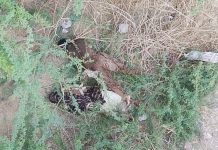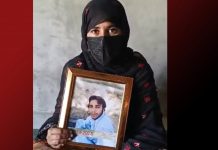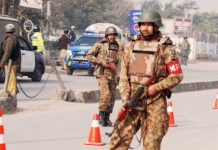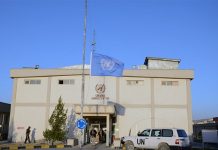With 192 cases, a single death and 17 recoveries, Balochistan is witnessing an increase in COVID-19 cases. On April 4, the National Health Institution of Pakistan confirmed 10 new cases in Balochistan whereas 7 new cases have been reported today.
According to the information received by the Balochistan Post; The first case of COVID-19 was confirmed on March 10 by the Fatima Jinnah Hospital officials in Quetta. A 12-year-old boy, who had recently travelled to the Capital via Taftan, was diagnosed with the disease. Afterwards, the number of novel cases has been slowly increasing. The first death was confirmed on March 22, which is also the only death reported so far.
However The data does not reflect the exact number of people affected by Covid-19, since it depends on the number of people being tested.
Ten Quarantine centres are currently functioning all over Balochistan, the largest being the Taftan Quarantine Centre, located on the periphery of the Pak-Iran border and capable of housing 5000 beds. Unfortunately, none of the Quarantine centres is well equipped with the apparatus to deal with the disease.
Balochistan lacks the requisite facilities and infrastructure to cope with the virus. In this scenario, Balochistan’s sparse and remotely located population has been the sole hindrance in the spread of the disease.
Taftan Quarantine centre was teeming with almost 6000 people at one stage. Living in a squalid, filthy and unsanitary environment, the detainees denounced the Quarantine centre as a prison. With no testing capabilities, the officials had to send a teenage boy to Quetta for a check-up, which was later confirmed as the first case of the virus in the province.
With a million-plus population, Balochistan’s capital, Quetta, has 30 ventilators and 12 ICUs whereas Kalat and other major cities have none of each.
Iran-Pakistan border was closed to thwart the repatriation of the Pakistani diaspora. It has been alleged that hundreds of other pilgrims bribed their way into the Baloch soil, despite the closure. It is thought that the virus might have hitch-hiked through these travellers in Balochistan, proliferating through the rest of Balochistan from there.
Put in a 3-week lockdown, Balochistan is facing the worst situation. Poverty is taking its toll as the poor daily-wagers find themselves in probationary unemployment. The rich are hoarding rations more than ever, perhaps fearing their depletion.
In a news conference on April 4 in Quetta, the spokesperson for provincial government Liaquat Shahwani announced that the government has allotted a 700 million rupees relief package, enough to buy rations for 150000 people. Shahwani also confirmed that Pakistani Prime Minister’s Ehsaas Programme will also be introduced in Balochistan soon. These initiatives might allay the situations for poor masses.




























